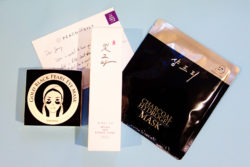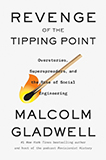Last month, I came across an article titled “Do colleges redline Asian-Americans?” and I still haven’t been able to get it out of my mind.
Do colleges really set a higher standard for Asian Americans? If this is true, as the article implies, the same must hold true for places of employment, no?
When I applied for colleges, or whenever I applied for jobs, I always happily volunteered my ethnicity on application forms. After all, my last name is nothing but Asian. But at the same time, I knew that being Asian gave me a slight disadvantage.
(Going slightly off tangent, I have always envied my Filipino-American friends for their Hispanic-sounding surnames. You can’t deny that they are more likely to be offered an interview because the college/company would like more diversity in their communities.)
Berate me all you want, but I have never been a fan of affirmative action for this reason (ETA: to be more specific, afirmation action based on race.). I strongly believe that people should be accepted to colleges and be offered jobs based on merit, not ethnicity.
Previous generations of Asian Americans have given up so much so that their kids (and grandchildren, great-grandchildren, etc) can have the same opportunities as the Caucasians of this country. I know Asians have come a long way in America, but what is the point if we are considered “model minorities” who are held to a higher standard solely based on our race?
It sucks that my kids will have to earn better grades than their white friends just to be accepted to the same schools. Or that I, as well as my many intelligent, creative, and outstanding Asian-American peers have been subjected to this reverse discrimination all our lives.
</rant>






 I like books, gadgets, spicy food, and art. I dislike shopping, hot weather, and the laws of entropy. Although I am a self-proclaimed computer nerd, I still have a love for handbags and makeup... and I am always teetering on high heels. To learn more about me, visit the
I like books, gadgets, spicy food, and art. I dislike shopping, hot weather, and the laws of entropy. Although I am a self-proclaimed computer nerd, I still have a love for handbags and makeup... and I am always teetering on high heels. To learn more about me, visit the 


I am sure I read an article maybe 5 years ago in the UCLA newspaper how when California law made it illegal to look at race as a determining factor people thought the white population would increase at UCLA, but in fact it stayed the same and the Asian student population increased significantly. Then there were tons of protests on campus about the lack of minorities on campus, but UCLA couldn’t do anything because its against California law to look at race.
@T — the article I referenced talks about the UC system because it has such a high percentage of Asian Americans (which I’m sure relates to the law you are referring to). They say that having a high percentage of Asian Americans can be disadvantageous because it less prepares students for diversity post-college, but I respectfully disagree. I believe that students who are preparing for success in the real world will seek out a diverse university experience and reach out to all races for friends and acquaintances.
damn you…making me read articles!!! 🙂 I like how all 45% of the asian population at UCLA has no cultural differences. Koreans, Chinese, Taiwanese, Japanese…eh, all asians, no diversity 🙂 I think that was just a random thought they didnt really think about and stuck in at the end.
@T — Great point! To be completely truthful I used to lump them all together in my head too (I grew up in a predominantly white neighborhood and so did not have much Asian friends before college) in my younger years. Then I married a Chinese man and saw just how different the Chinese and Korean cultures can be. I guess in their mind, we Asians all look the same so we must all be the same. 😉
I hear you, and I can understand why an affirmative action regime that appears to hold Asian-Americans to a higher standard may seem unfair. Nonetheless, I am a wholeheartedly supporter of AA (in its non-quota, Supreme-Court-sanctioned form) in education for many many reasons. The first and most important of which is that "merit" is not the neutral standard that it may seem to be: assessments of "merit" (like the SATs, grades, schools attended, etc.) ignore and even obscure the inequalities that lead to varying performances on those assessments. Kids who grow up in disadvantaged neighborhoods and households are, on balance, not going to succeed on "merit" — not the way we assess "merit" now anyway. My mentor, Lani Guinier, has a good book coming out on how "merit" is a red herring.
That being said, in my ideal world, AA would be conducted on the basis of socio-economic status and not race. America is so fixated on race and uses it as an index for everything, regardless of how inaccurate it may be. For example, certain Asian populations, like the Hmong, Cambodian, and Vietnamese, are nowhere near as well represented in higher education as their Korean, Japanese, and Chinese counterparts. And certain black populations, like first- and second-generation African immigrants, are disproportionately represented in higher education compared to African-Americans.
However imperfect the current AA system is, though, I am Asian-American and am willing to be held to a higher standard or to be "red-lined" because I recognized that 30 years ago, the system benefited people like me, and what would be very unfair is if I were to slam the door close or withdraw the helping hand to others who needed it only because I no longer needed it.
@Amanda — I just edited my post to clarify that I’m opposed to affirmative action based on race, because I do see some benefit to having AA based on socio-economic backgrounds. I, like you, firmly believe that as America becomes more of a melting pot of cultures, we should put less emphasis on race and more on soci-economic status. However, I guess I’m lazy in the sense that I am not willing (or at least I think it’s unfair) to put in the extra work just because of my race.
Perhaps my bitterness can be traced back to senior year in high school when I was wait-listed, then rejected from my first-choice school. Because my high school was a public one in a small community, this university made it known at my interview that they would only be accepting one person from our school. The person they ended up accepting over me had a practically the same credentials as me…but he was white. Even my guidance counselor took pity on me and told me that this university has a very low acceptance rate for Asian-Americans, and that was probably a big factor in their decision to choose him over me.
:\ I’m really guilty of automatically thinking Asian people are smarter than other people. Sigh. I’ll seriously admit it. I can’t help it. I know it’s not fair & I’m working on the stereotype, but damn you all, I swear every time I meet someone who is Asian (specifically Chinese, if you want to know the truth) I am amazed at their intelligence/work ethic. And their families invest so much into education and the importance of a good job.
Blah. I never thought of it in the sense that you’re talking about though. Food for thought. And I apologize, I seriously do, for following along with this stereotype… it’s just a hard one to debunk for me, but I understand it puts a lot of pressure on people, too.
It sounds like you truly believe that reverse discrimination against Asians is taking place. From my personal experience, I can’t say I feel the same way. The non-Asians at MIT were just as brilliant, talented, and hard working as the Asians, if not more so. I did not feel that there were different bars set for different ethnicities. From your experiences at JHU, would you say that the Asians were superior to the non-Asians who were admitted? That seems to be what you’re saying.
@Sherry — Hmm you make a good point; I guess it can be inferred from what I wrote that Asians are superior to the non-Asians who were admitted to universities.
I wish I could answer your question, but I really can’t because my major was not popular with the Asian-American population at JHU. While Asians accounted for over 30% of the student body when I attended, I would maybe have one other Asian-American student in my classes, if any (this, of course, does not take into account the huge classes with 50+ students where student interaction was minimal).
That being said, I think that you would see a greater trend toward Asians (as a whole) having better grades in schools with higher acceptance levels, or even B-level schools. Aside from pure geniuses, I’ve found that most students at top-tier universities usually have similar intelligence/talent levels, as well as similar (good) working habits.
I think the fact that you were the only Asian in your classes is really interesting. Perhaps the diversity that the admissions committee is looking for isn’t necessarily diversity in ethnicity, but diversity in interests. I’d say that most Asians tend to have very similar interests with the overwhelming majority of them studying science, engineering, business, accounting, medicine, and the like. There are much fewer Asians who pursue degrees in the arts and humanities. Let’s say that the schools change their policy to admit based purely on merit and achievement and no longer take into consideration diversity of intellectual interests. If there were more Asian students enrolled as a result, I think it’d significantly alter university dynamics. Just food for thought. Btw, this topic is really interesting! Thanks for blogging about it.
Thanks for this interesting and insightful post, I enjoyed reading it as well as the comment discussion. It reminds me of a conversation we had in my cross cultural diversity class about micro-aggression that constantly occur. Micro-aggressions are comments that aren’t necessarily racist or intended to be rude but make some sort of judgment or assumption in the statement. For example, "Oh you are Asian, you must be really good at ____" or "You are really athletic you must have _____ in your genes." These sort of things happen all the time and it’s amazing when you start paying attention. We made a list of thing that we have been told or just heard and it was incredible the amount of assumptions that are put out in daily conversation.
I think if you are smart, you go to college. Nobody should CARE what race you are. And, it shouldn’t mean you automatically get more money because you are 1/16th X race or whatever and that you get an advantage because your race in general is disadvantaged. I believe you make your own path in life–you shouldn’t rely on the generations before you for favors, basically. I’m mixed race, too, and I have benefited from some of the "women in minority programs" funds, but I always thought it was dumb I got money just b/c i was a minority. That my ONLY qualification for that money was that i was a woman.
I meet an awful lot of extra smart and super intelligent asian people though (most of my friends were asian growing up). But you know what, then I realize that their parents sent them to SATURDAY SCHOOL and extra tutoring every week. Also that they didn’t play sports or have hobbies because they were instructed to learn. It’s not that they are naturally smarter, it’s that their parents seriously trained them to absorb knowledge like sponges. I’ll take 5 days of school over 6 any day of the week. I think in general, though, there are cultures that emphasize education a lot more than your traditional American caucasian family. Something about being well-rounded…haha =]
I don’t really have much to add to this, except that I definitely stuck out in my university major. Among the sea of impeccably groomed, mostly blonde and blue eyed Barbie types, the nerdy Asian stood out in the communications stream like dog’s balls (BF’s expression, which I think sums it up perfectly)